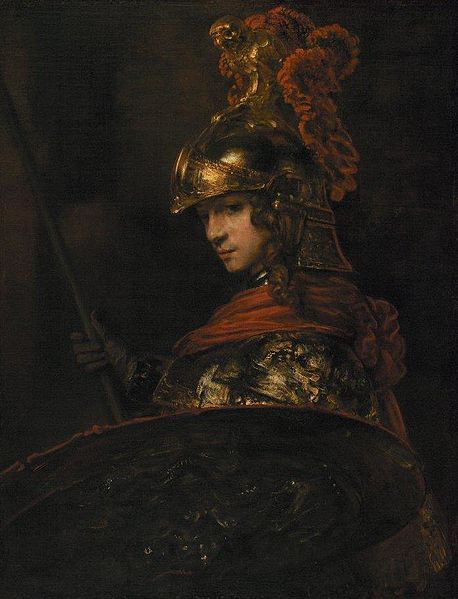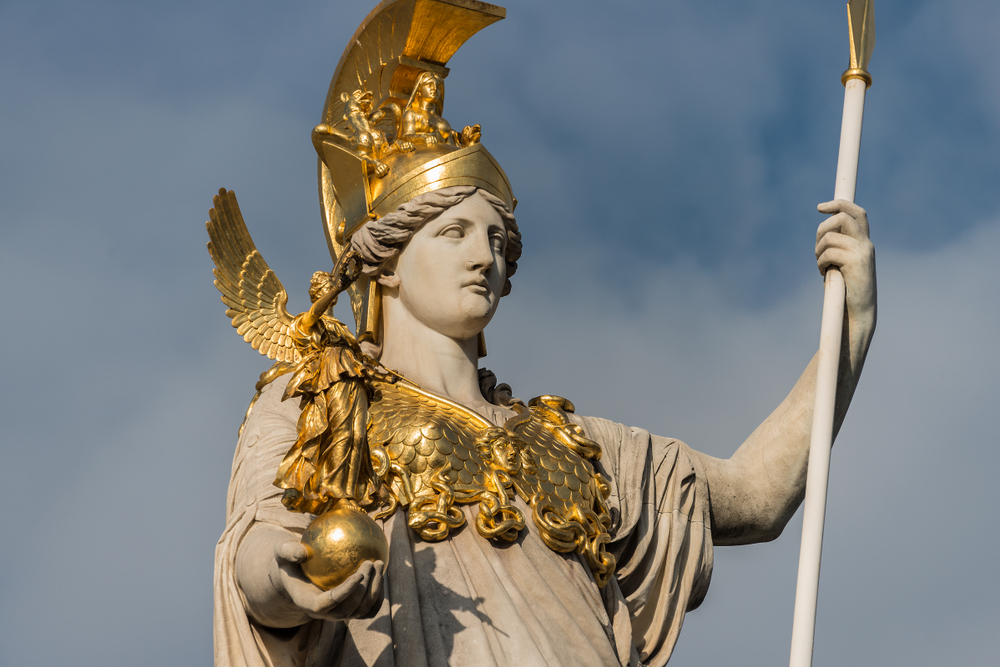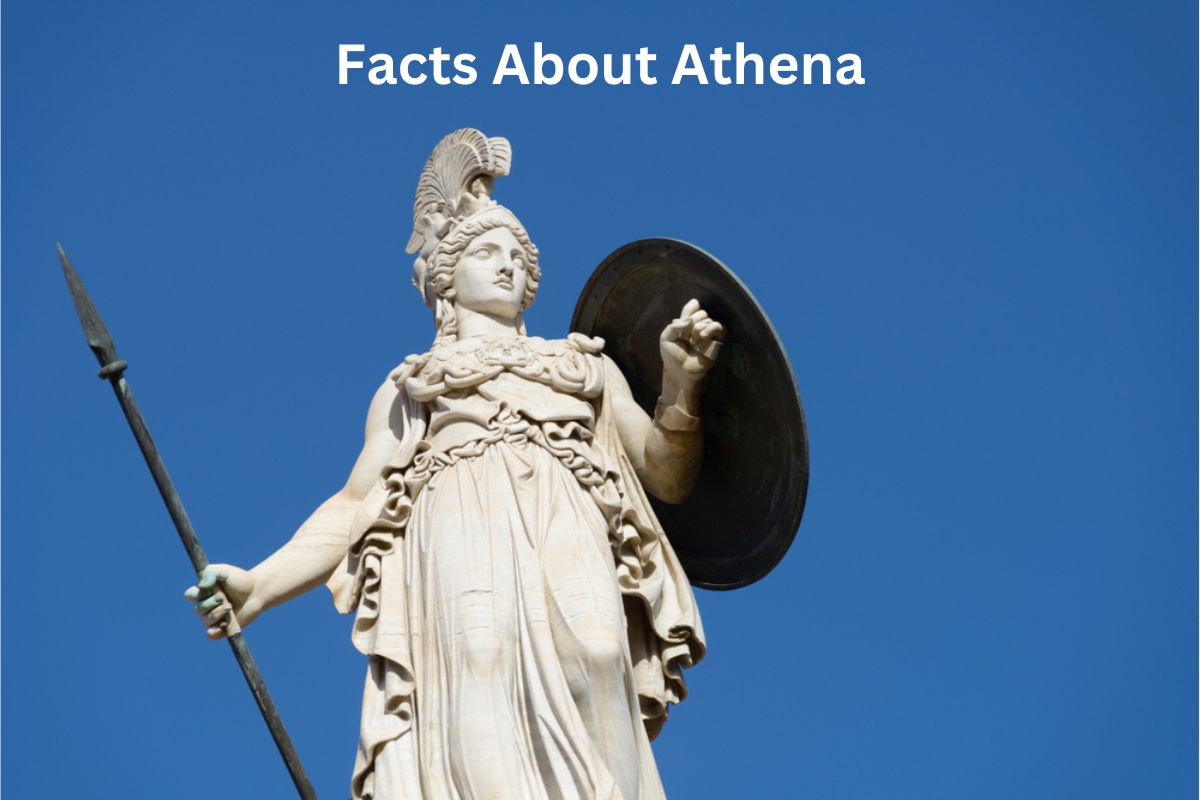Athena, an ancient Greek goddess, holds a prominent place in mythology and is associated with wisdom, courage, strategic warfare, and crafts. As the daughter of Zeus, she is one of the twelve Olympian gods and goddesses.
Athena’s birth is unique, as she emerged fully grown and fully armed from the head of Zeus. She is often depicted wearing a helmet, carrying a shield, spear, and olive branch. Athena is revered as the patron goddess of heroes and warriors, offering guidance and protection in their quests.
She is also the goddess of crafts, particularly weaving and pottery. The city of Athens is named after her, symbolizing her impact and influence.
Athena represents reason, intelligence, and rational thinking, and her image has inspired countless works of art and literature throughout history.
Athena Facts
1. Greek goddess associated with wisdom, courage, strategic warfare, and crafts
She holds a prominent position among the gods and goddesses of ancient Greece and is revered for her various attributes and domains. As the goddess of wisdom, she embodies intelligence, knowledge, and strategic thinking.
Also Read: Facts About Demeter
Athena’s courage is displayed through her involvement in battles and her protection of heroes. Additionally, she is associated with crafts and is known for her skills in weaving, pottery, and other artistic pursuits.

2. Daughter of Zeus, the king of the gods
Athena is the daughter of Zeus, the king of the gods, and holds a special place within the pantheon. Being the offspring of Zeus, she inherits his divine powers and authority.
Also Read: Hades Facts
As one of the twelve Olympian gods and goddesses, she occupies a significant role in Greek mythology and is often portrayed as a powerful and revered figure.
3. Born fully grown and fully armed from the head of Zeus
The birth of Athena is a unique and notable mythological event. According to Greek mythology, Athena was born fully grown and fully armed from the head of Zeus.
This extraordinary birth was the result of Zeus swallowing her mother, Metis, to prevent the birth of a child who could potentially overthrow him.
The birth of Athena symbolizes her association with wisdom and strategic thinking, as she emerged fully formed with her intellect and warlike attributes intact. This mythic tale highlights her divine origins and establishes her as a formidable deity in the Greek pantheon.
4. Often depicted wearing a helmet and carrying a shield, spear, and olive branch
These attributes represent different aspects of her character and domains of influence. The helmet symbolizes her role as a warrior and protector, emphasizing her association with strategic warfare.
The shield represents her defensive capabilities and her role in safeguarding cities and heroes. The spear signifies her prowess in battle and her ability to strategize and lead in combat. The olive branch, on the other hand, is a symbol of peace and prosperity, highlighting her role as a bringer of harmony and civilization.
5. Patron goddess of heroes and warriors
As the patron goddess of heroes and warriors, Athena holds a special place in Greek mythology. She is known for her unwavering support and guidance to heroic figures during their quests and adventures.
Athena’s aid often comes in the form of strategic advice, divine intervention, or bestowing them with gifts and skills to succeed in their endeavors. She is regarded as a mentor and protector, offering wisdom, courage, and assistance to those who seek her favor.

6. Goddess of crafts, particularly weaving and pottery
Athena is also closely associated with crafts and artistic pursuits. She is considered the goddess of crafts and skills, particularly weaving and pottery.
Athena’s patronage of crafts reflects her multifaceted nature beyond war and wisdom. She embodies creativity, craftsmanship, and excellence in artistic endeavors.
Her expertise in weaving is often symbolized by the loom, while her association with pottery showcases her mastery in shaping and creating beautiful objects. This aspect of Athena demonstrates her well-roundedness and the importance of creativity and skill in ancient Greek society.
7. City of Athens is named after her
According to Greek mythology, Athena competed against Poseidon, the god of the sea, for the honor of becoming the city’s patron deity. The competition involved offering a gift to the people of Athens. Athena presented them with an olive tree, which symbolized peace, prosperity, and fertility.
The people of Athens valued Athena’s gift, as the olive tree had numerous practical uses, such as providing oil, food, and wood. As a result, Athena was chosen as the city’s patron, and Athens became closely associated with her name and divine protection.
8. Symbolizes reason, intelligence, and rational thinking
Athena is often revered as a symbol of reason, intelligence, and rational thinking. She represents the power of intellect and strategic planning.
In Greek mythology, she is frequently portrayed as a wise and calm goddess, known for her sound judgment and ability to provide practical solutions.
Athena’s association with wisdom goes beyond mere knowledge; it encompasses the application of wisdom in everyday life and decision-making.
9. Aids and protects famous heroes like Perseus, Odysseus, and Hercules
Athena plays a crucial role in aiding and protecting renowned heroes in Greek mythology. Her guidance and support are instrumental in the success of heroic quests and endeavors. For example, Athena assists Perseus by providing him with a mirrored shield to defeat Medusa.
She aids Odysseus throughout his epic journey in the “Odyssey,” offering him counsel and intervening to protect him from various dangers.
Additionally, Athena supports Hercules in his Twelve Labors, imparting him with advice and helping him overcome challenges. Her involvement with these heroes showcases her role as a guardian and mentor, ensuring their triumph in the face of adversity.
10. Popular subject in ancient Greek art and literature
Throughout history, Athena has been a popular subject in ancient Greek art, literature, and architecture. Her iconic imagery and symbols are depicted in various forms, including sculptures, pottery, and paintings.
Artists and writers have been inspired by her wisdom, courage, and creative abilities. The Parthenon, a famous temple in Athens, was dedicated to Athena and is considered one of the most magnificent architectural achievements of the ancient world.
Athena’s continued presence in art and literature attests to her enduring significance as a symbol of wisdom, intelligence, and strategic thinking in human culture.
